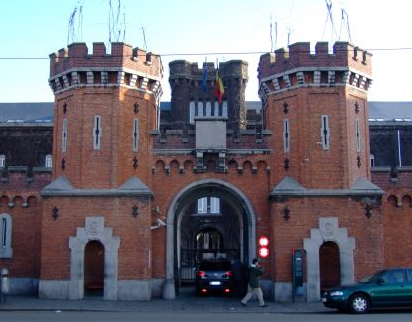EWL members reach out to refugees in Belgium
World Refugee Day

[Brussels 20 June] EWL Belgian members Nederlandstalige Vrouwenraad (Dutch speaking women’s council of Belgium), would like, on the occasion of World Refugee Day on June 20th, to draw your attention to the situation of women refugees in Belgium.
In 2012, there were about 21,463 refugees in Belgium. One third of them were women.

They mostly seek refuge in Belgium for the same reasons as men, but the number of gender specific reasons grows. Very often in their home countries, they are victims of rape, genital mutilation or other specific types of violence e.g. stoning.
In 2010, the Vrouwenraad (Dutch speaking women’s council Belgium) investigated the situation of women in Belgian refugee centres and published a report which stated that both infrastructure and services very often are not adapted to their needs: they lack privacy, they often cannot dispose of rooms of their own, they sometimes feel threatened by male refugees or even by their own partners. They are not in control of their own and their children’s situations.
On the other hand, the report states that those women don’t give up and are very resilient and eager to grasp the opportunities for a better future.
Contact with women outside the refugee centre is of major importance to them.
That’s why the NVR has launched the project ‘Amongst women’*.
It all started with a pilot project in Klein Kasteeltje in Brussels. Volunteers and collaborators from women’s organizations set up informative, meaningful, creative and relaxing activities in safe surroundings. Taking part in these activities once a month allows women in refugee centres to get to know each other, to tell their stories and to share their interests and experiences. The contact with women from outside opens doors to building a social network which helps them out of their isolated position. It empowers them and helps them to catch up with the future. Women in refugee centres are very enthusiastic about this approach and ask for more.
In the meantime, the (successful) project has spread from Brussels to Antwerp, Limburg and Vlaams-Brabant. Next year, the provinces Oost- en West-Vlaanderen will be involved as well.
The women’s council is still in search of volunteer organizations that want to participate in the project. If interested, please contact:
Gart Goorden
Nvr.ggoorden@amazone.be
http://www.vrouwenraad.be/p 715.htm.
Riet De Baets
Board member Vrouwenraad
Board member EWL
*’Amongst women’ is a three-year-project in collaboration with Fedasil and supported by the European Refugee Fund.
The image is that of the Klein Kasteeltje or small castle, located in the north of the heart of Brussels it is the largest reception centre for asylum seekers, with 700 beds.
From the Fedasil website:www.fedasil.be/en/home/opvangcentrum
Belgium has 45 reception centres for asylum seekers. They are managed by Fedasil or the Belgian Red Cross. These are open centres: this means that the residents are free to enter and leave the centre.
The reception centres are different in many respects: often these are former military bases, boarding schools or hospitals; sometimes they are newly-built prefab buildings. There are small centres (with 75 beds) and large centres (the biggest reception centre has more than 700 beds). Some are located in the city centre, others in the country. And yet all these centres offer the same services.
A reception centre for asylum seekers provides for the daily basic needs of its residents: a place to sleep, food and clothing. During their stay at the centre the asylum seekers also receive social, legal, medical and psychological assistance.
Several activities are organised at the reception centre to offer asylum seekers a meaningful way of passing their time as they await a decision in their case. Most reception centres also have a sport facility and an Internet room so that residents can keep in touch with friends or family at home.
For the first six months after submitting their application asylum seekers cannot work in Belgium but they may take classes (language courses, cooking, IT, and so on).
The residents can carry out different tasks in the centre. The cleaning of the common rooms, serving of meals and assisting various departments are but a few examples of such community services. They receive a little extra on top of their pocket money.




